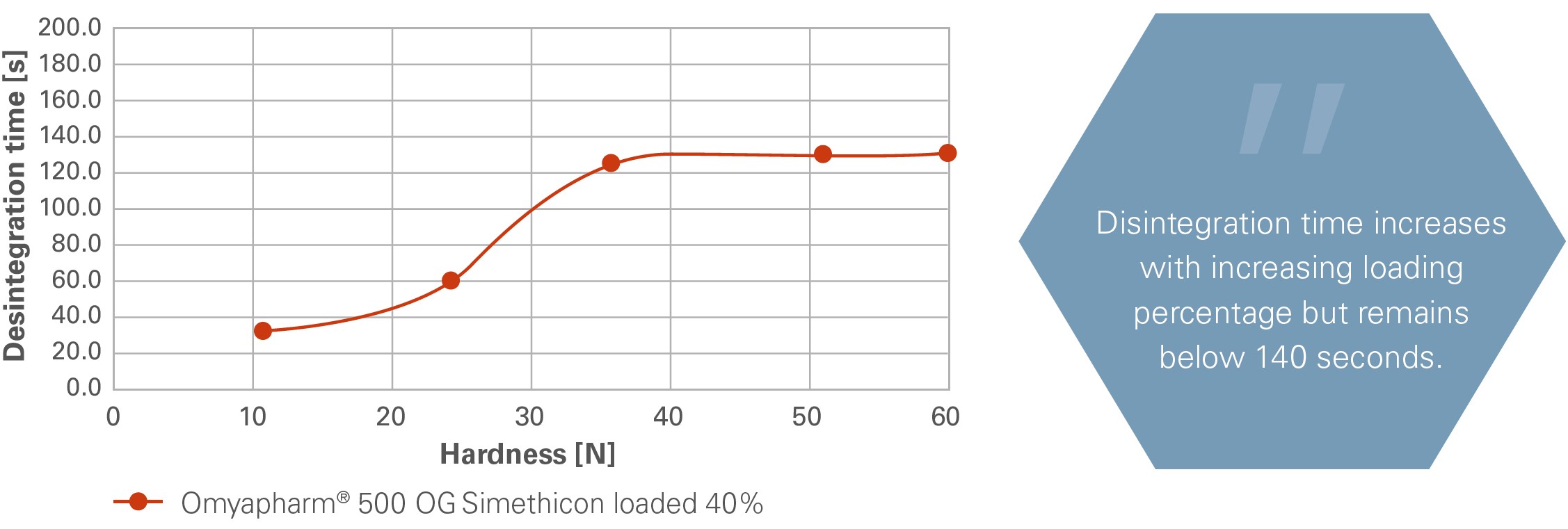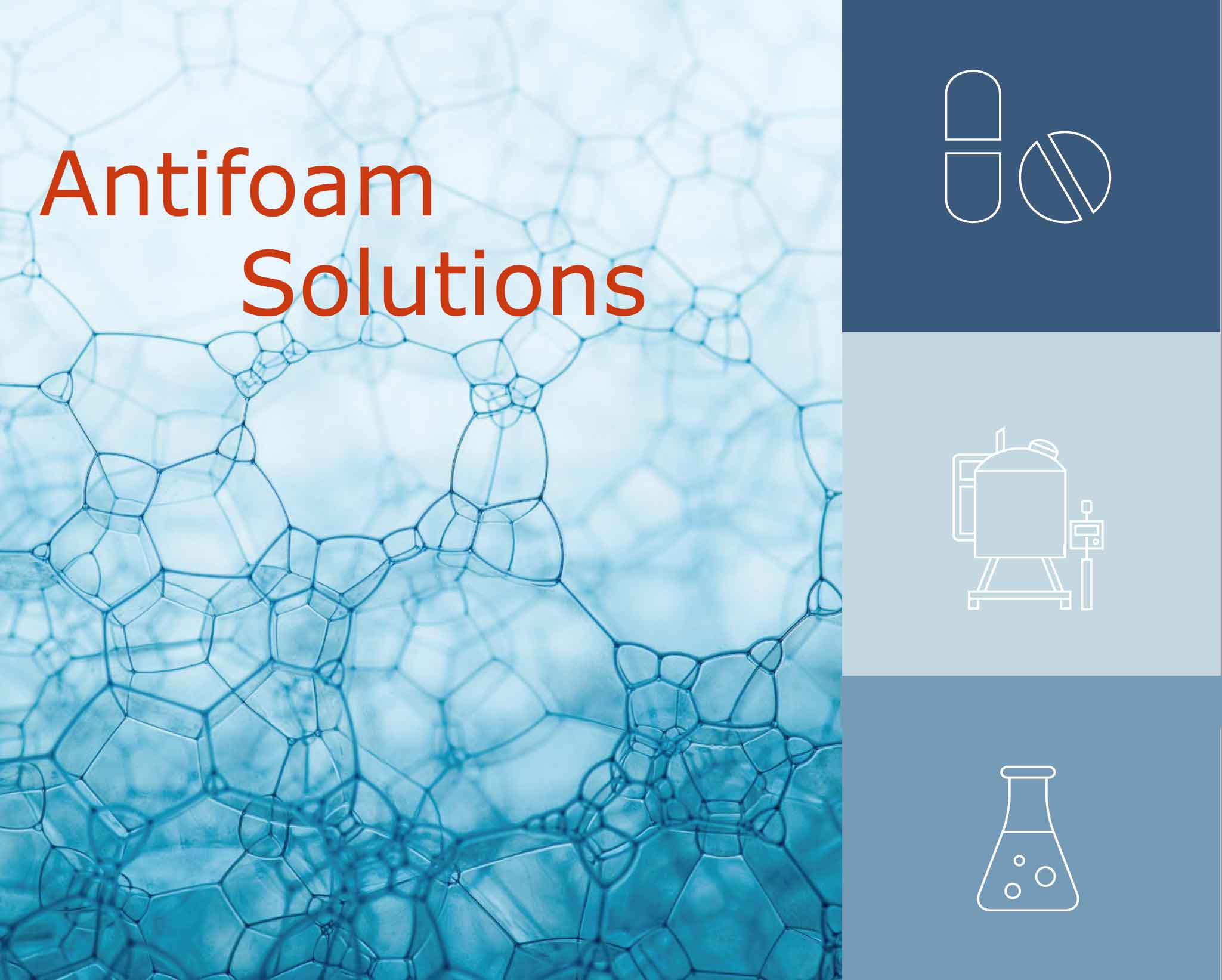The Importance of Antifoams
Foam is created when gas is dispersed into a continuous liquid phase and remains stabilized within the dispersi-on.
In pharmaceutical processes it is essential to keep the formation of foam under control. The presence of foam can cause serious problems during production. Excessive foaming leads to reduced equipment and container capacity and increased processing time. Foam may even negatively influence the quality of the final product (e.g. the surface of tablets).
In medical applications such as dialysis, where human blood is purified and redirected into the human body, the prevention of foam is an essential consideration.
In the ‘human system’ the formation of foam can also cause unpleasant gastrointestinal effects like bloating and stomachache.
With regard to the pharmaceutical industry, it is clear that in many applications a fast and effective antifoaming agent is needed to prevent uncontrolled foaming and to maintain smooth and efficient processes.
Biesterfeld Spezialchemie GmbH offers highly effective and versatile defoamers which can be used as supplied or further diluted with water. Typical applications are foam suppression and inhibition in fermentation, manufac-turing and filling processes. We also offer antifoams for critical medical applications, which are used as APIs in antiflatulents for solid or liquid dosage forms.
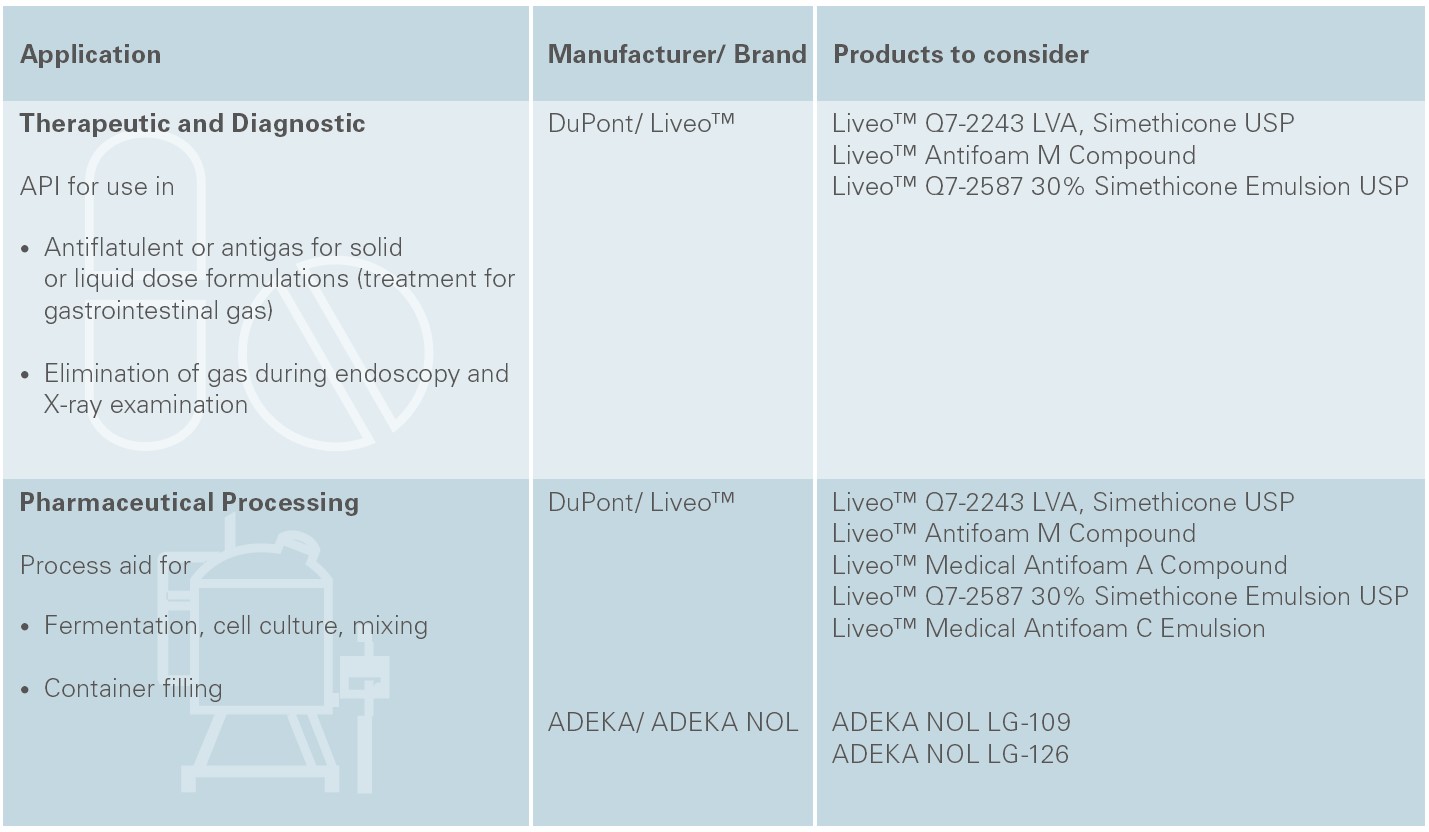

DuPont – Silicone Antifoams
DuPont™ Liveo™ simethicone compounds and emulsions are manufactured at an FDA-registered production site under ICH Q7 GMP conditions.
Applications:
• Active for prescription/OTC/medical device antiflatulents
• Foam control in medical and pharmaceutical applications
• Process aid for biofermentation
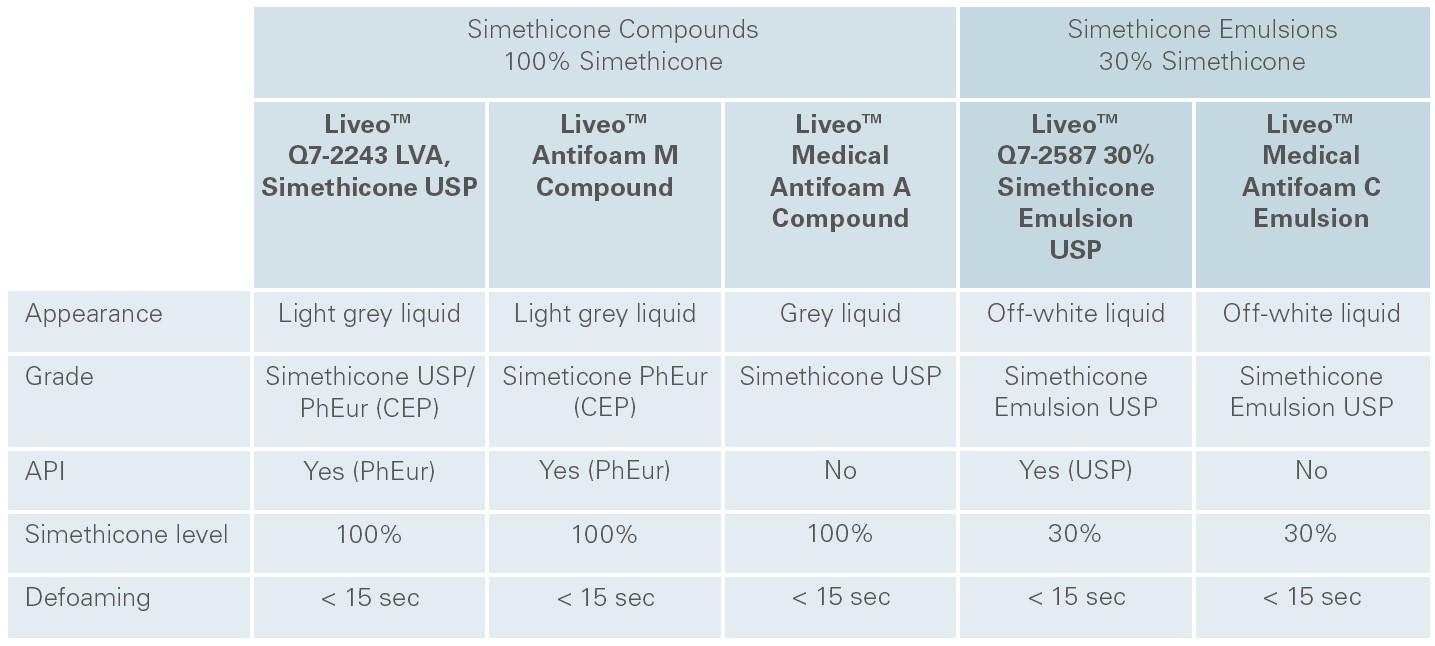

ADEKA – EO/PO-based Antifoaming Agents
The ADEKA NOL LG series are non-ionic EO/PO-based defoamers (polyalkylene
glycol structure). ADEKA NOL LG-109 & LG-126 are used in numerous applications
as defoaming, wetting and emulsifying agents.
Applications:
• Process aid in the production of pharmaceuticals and cosmetics
• Fermentation processes (e.g. of astaxanthin, EPA/DHA, amino acids and yeast)
• Food processing
Benefits:
- Excellent foam-breaking effects
- Non-ionic
- No residues (water-soluble)
- Easy to sterilize (no separation of water/oil phase)
- pH-independent
- Resistance to alkalis (chemical stability)
- Halal/kosher certification
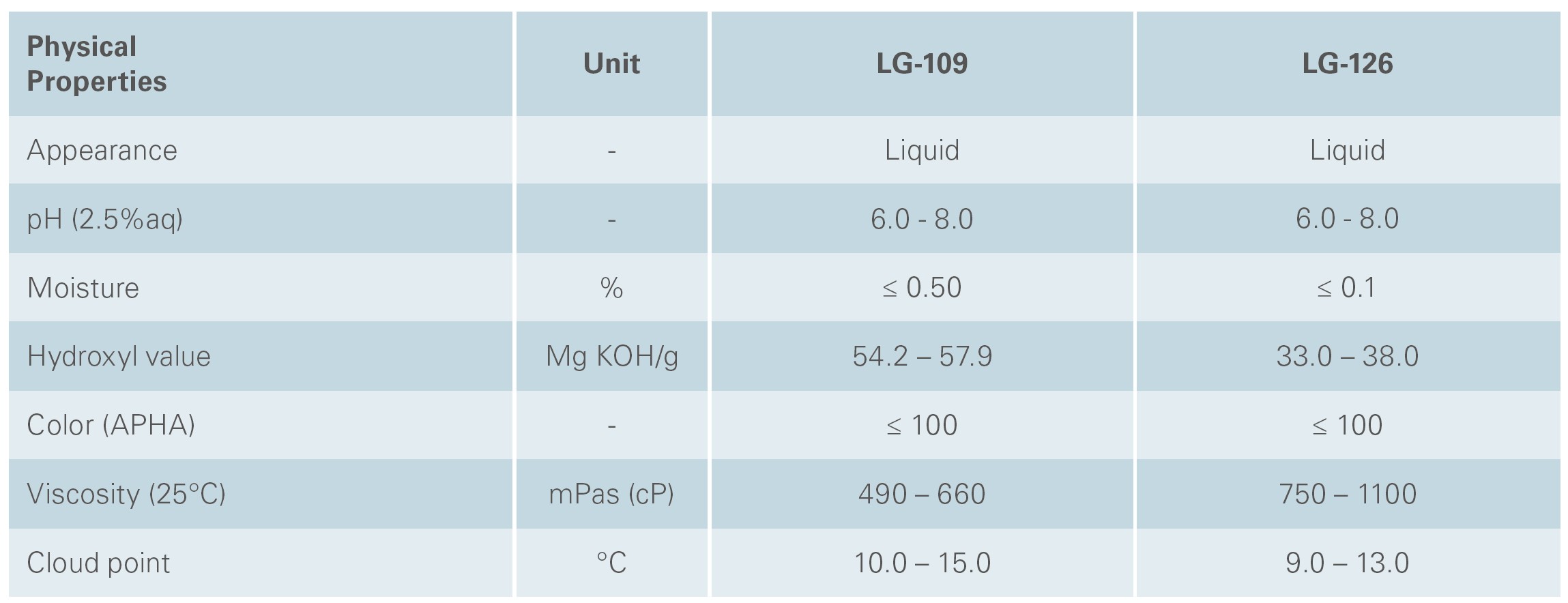
Solid dosage forms with liquid API
A major advantage of liquid dosage forms is that the API is already dissolved, so the dosage can be taken as it is. Solid dosage forms, on the other hand, have the advantage of not requiring preservatives and are generally more stable and easier to handle. A liquisolid is a tablet or powder with a liquid API absorbed into a solid carrier excipient which combines the advantages of both liquid and solid dosage forms.*
Below we present a fast and easy solution for turning liquid simethicone into a solid dosage form.
* [cf. Tablets & Capsules Magazine, “eye on excipients”, Suedzucker/Beneo-Palatinit, April 2018, page 39]
Liquid API: Liveo™ Q7–2243 LVA Simethicone
Liveo™ Q7–2243 LVA Simethicone as offered by Biesterfeld Spezialchemie is an antifoaming agent that is used in pharmaceutical
formulations for the treatment of certain disorders within the lower gastrointestinal tract.[In compliance with USP/ Ph.Eur. / CEP available]
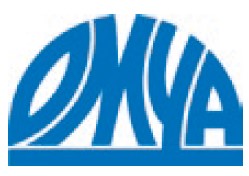
Solid carrier excipient: Omyapharm® - Omyapharm® 500 - OG
Omyapharm® 500-OG is a porous compressible carrier composed of calcium carbonate
and tribasic calcium phosphate, which can be loaded by impregnation with up
to 40% crystalline actives and 55% oils, converting oils into compressible powders.
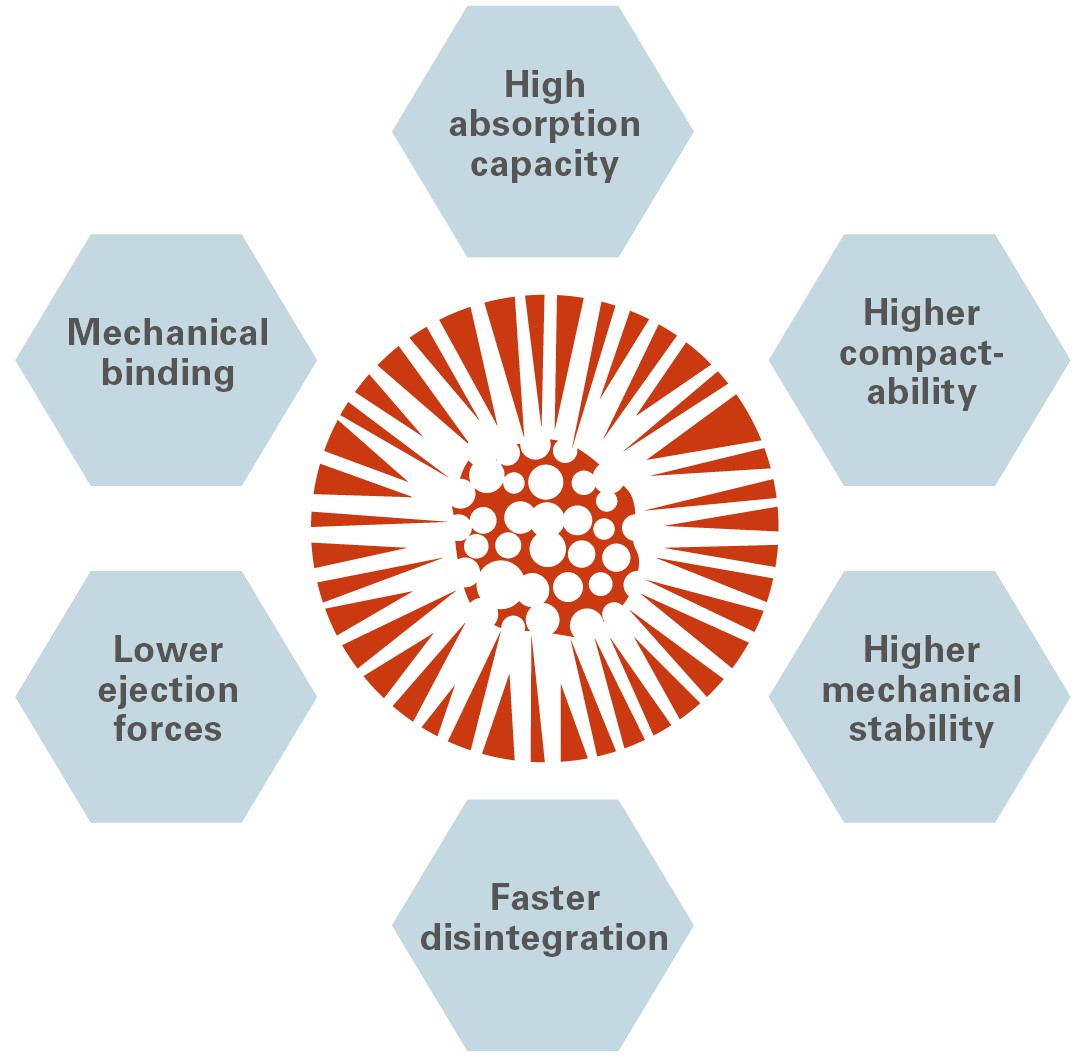
Features:
- Lamellar structure
- Brittle material, plastic behaviour
- Mineral composition
- Monographed components
- High porosity
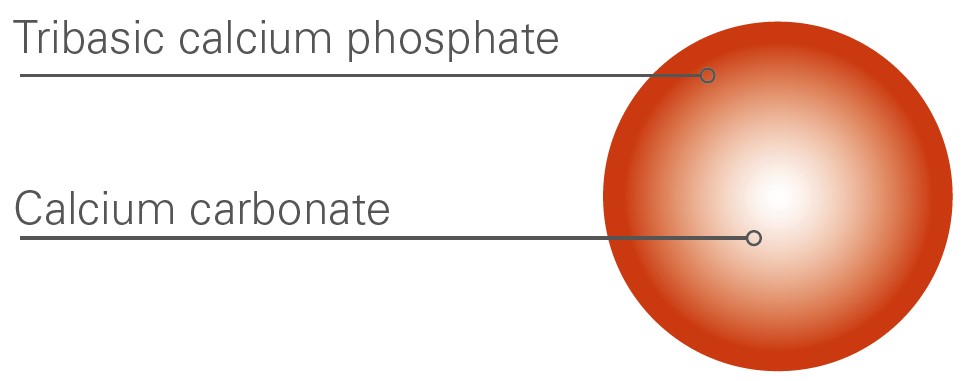
Carrier
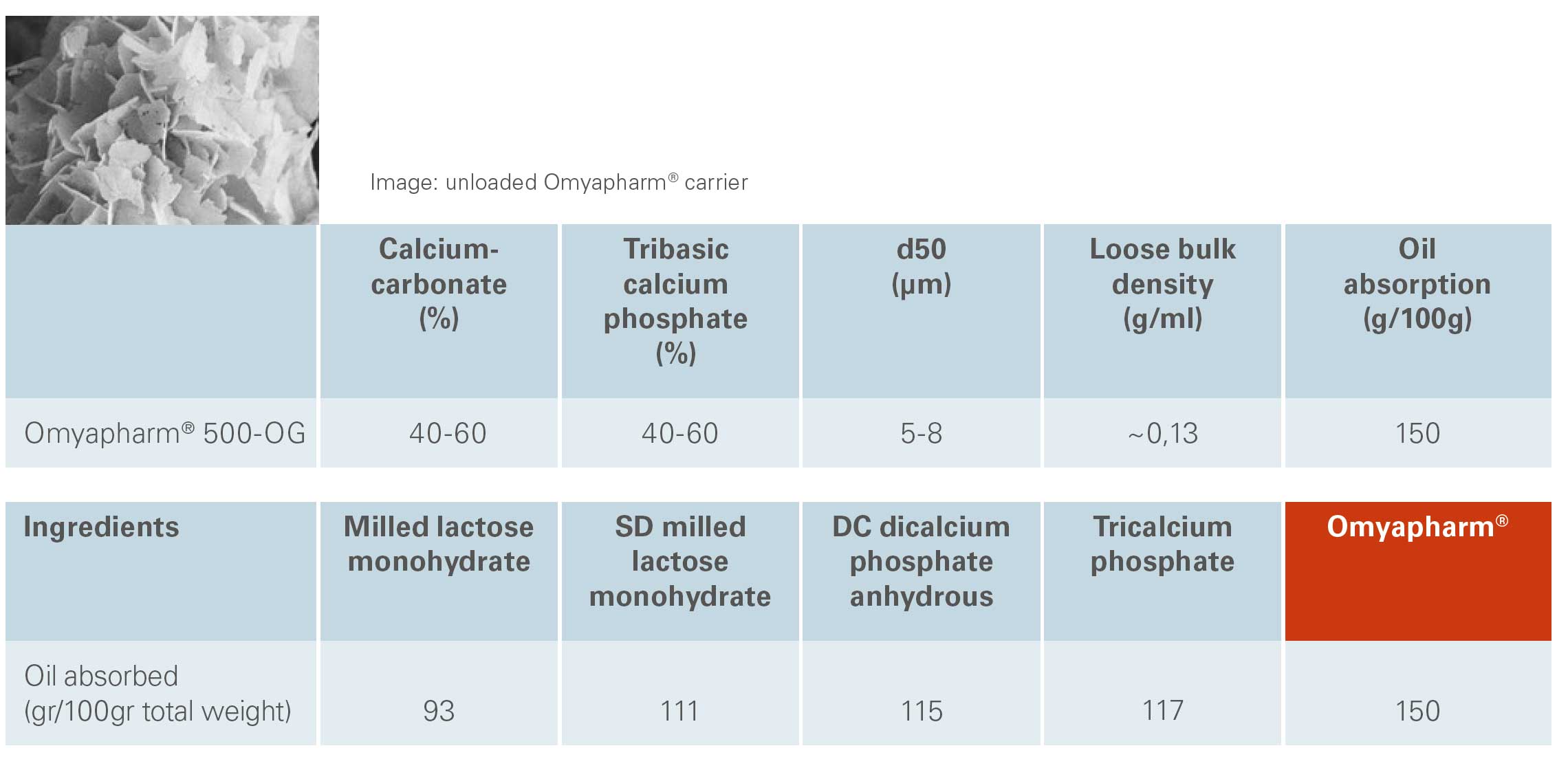
Solid dosage forms with liquid API
Application example with Omyapharm® loaded with Simethicone (Liveo™ Q7-2243 LVA, Simethicone USP)

Tableting Performance
Compactability

Friability
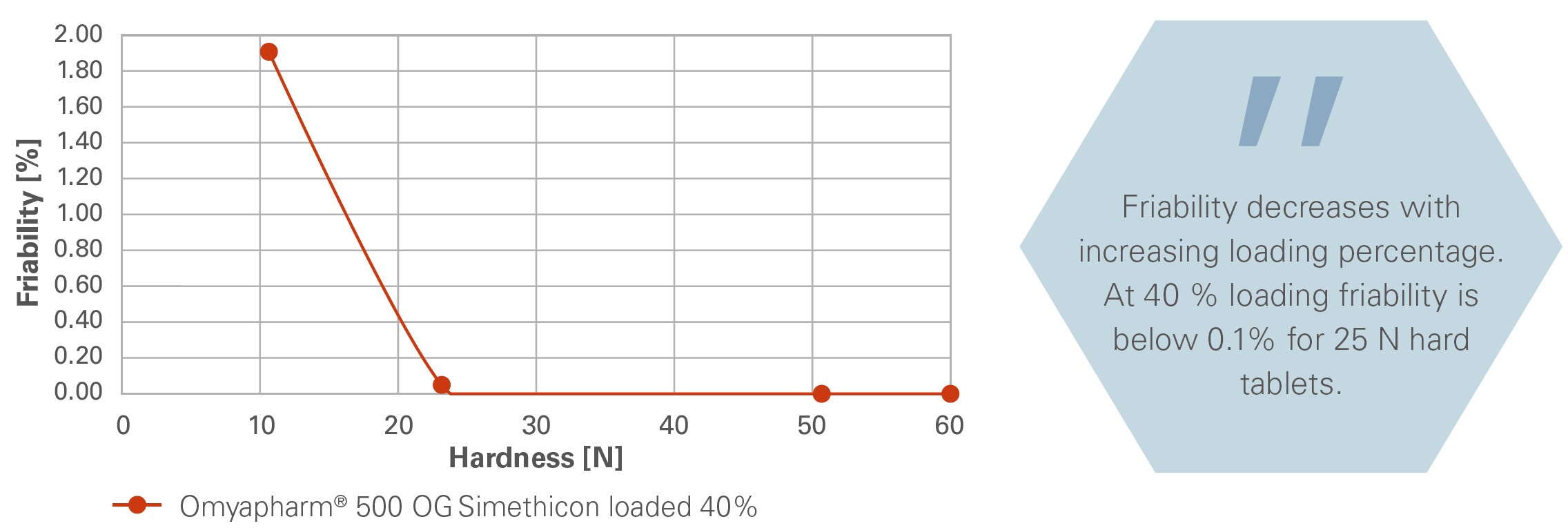
Disintegration time
